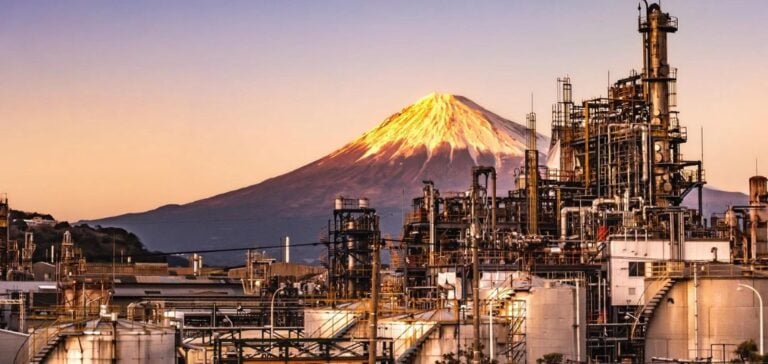In a strategic move announced on March 19, Idemitsu Kosan, Japan’s second largest refiner, is committed to increasing its stake in Fuji Oil, a major step towards consolidating its position in the petroleum products sector. This decision aims to enhance bilateral competitiveness and strengthen cooperation with a view to achieving carbon neutrality by 2050. These plans follow in the footsteps ofJapan’s ENEOS, which is accelerating its move towards hydrogen. A number of Japanese companies are working in this direction, such as HIF and Idemitsu, who are cooperating on the production of neutral eFuels.
As for Idemitsu, it plans to acquire all the shares held by Sumitomo Chemical, increasing its stake in Fuji Oil to 13.04%. This acquisition will make Idemitsu Fuji Oil’s largest shareholder, strengthening its control over the company. At the same time, this move is part of a broader vision to transform Fuji Oil into an affiliated company under the equity method.
Key partnerships
This strategic shift has significant implications for Fuji Oil’s partners. Among them, JERA, currently Fuji Oil’s main purchaser of low-sulfur fuel for power generation, will become the second largest shareholder, holding a stake of over 8%. This reallocation of ownership will be closely monitored by major players such as Kuwait Petroleum Corporation and the Saudi government, who each own over 7% of Fuji Oil.
However, the question of Idemitsu acquiring JERA’s stake remains open, with Idemitsu declining to comment on the possibility. This uncertainty raises questions about Fuji Oil’s future ownership structure and the direction its operations will take in the future.
Energy Transition
In addition to the implications in terms of ownership structure, this development comes at a crucial time for Japan’s energy sector, as companies in the sector step up their efforts to meet the challenges of the energy transition. In this respect, Idemitsu and Fuji Oil have announced major initiatives to reduce their carbon footprint. Idemitsu aims to establish a sustainable aviation fuel production capacity of 500,000 kiloliters per year by 2030, following the planned launch of production from the first alcohol-based fuel plant in Tokyo Bay in 2026. For its part, Fuji Oil has already taken concrete steps by receiving its first low-carbon ammonia in April 2023, produced by SABIC Agri-Nutrients with raw materials supplied by Aramco.
The strengthening of Idemitsu Kosan’s hold on Fuji Oil will above all lead to closer cooperation in the quest for energy transition.






















